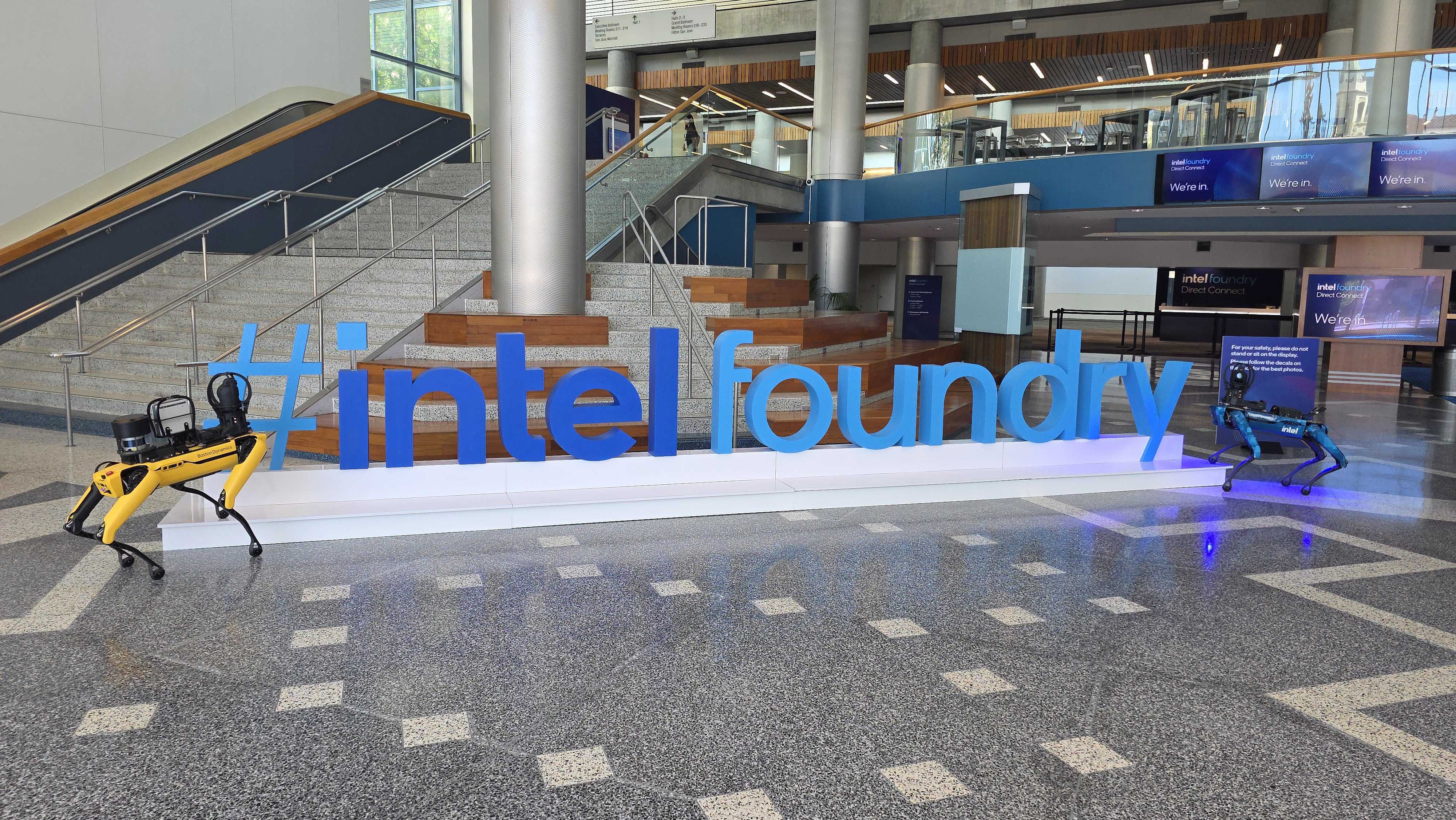Intel hosts Direct Connect Asia event in Seoul — company tries to lure Samsung Foundry clients in its own backyard
It's the first time a Direct Connect was held outside the U.S.

Being significantly behind TSMC in terms of foundry market share, for Intel Foundry, it makes sense to focus on competing against a smaller rival, Samsung Foundry. To that end, the company is trying to attract customers who currently rely on production at Samsung Foundry. This week, Intel held its Direct Connect Asia event in Seoul, Korea, trying to connect with potential customers from the region, reports The Bell (via Jukan Choi).
Intel Foundry's Direct Connect is an event that is similar to TSMC's Technology Symposium and Samsung's Foundry Forum, designed to reveal information about the latest and upcoming process technologies. The Direct Connect Asia in Seoul was the first time the event has been held outside the U.S., which highlights Intel's interest in attracting customers outside of the U.S., but emphasizes that the company pays particular attention to South Korea-based companies that have traditionally relied on Samsung Foundry.
The event was attended by numerous domestic and international fabless companies as well as ecosystem partners working together with Intel Foundry, including Arm, Cadence, Synopsys, and Rambus. Among the notable attendees were DeepX, Hyundai Mobis (an auto parts company that is a member of Hyundai Motor Group), LG Electronics, Preferred Networks, Rebellions, SK hynix, and even Samsung LSI.
These companies are currently customers of Samsung Foundry, TSMC, or UMC (or all of them), so their attendance is presumed to be for the purpose of exploring supply chain diversification. For example, Samsung tends to build advanced chips in-house, but it outsources some of the simplest ICs that are made on mature nodes, such as display driver ICs (DDICs).
It should be noted that both SK hynix and Samsung may also be interested in producing base dies for HBM4 memory at Intel Foundry in a bid to appeal to customers that plan to use Intel Foundry's advanced packaging services.
Intel is also trying to win new customers in the growing automotive semiconductor sector in a bid to diversify its business portfolio, which is heavily focused on client PCs and servers. Therefore, it summoned Korean automotive semiconductor companies like Hyundai Mobis, BOS Semiconductors, and LX Semicon to its Direct Connect event in Seoul. It is noteworthy that, for now, Intel does not have specialized process technologies for the automotive industry, though this might change in the future.
TSMC commanded 35.3% of the so-called Foundry 2.0 market (which includes mask creation, chip production, and packaging) in Q1 2025, according to Counterpoint Research. Intel was significantly behind with 6.5%, whereas Samsung Foundry's share was 5.9%. Given that TSMC is so much bigger than Intel on the foundry market, it is no surprise that Intel is trying to address Samsung's clients first.
Get Tom's Hardware's best news and in-depth reviews, straight to your inbox.
Follow Tom's Hardware on Google News to get our up-to-date news, analysis, and reviews in your feeds. Make sure to click the Follow button.

Anton Shilov is a contributing writer at Tom’s Hardware. Over the past couple of decades, he has covered everything from CPUs and GPUs to supercomputers and from modern process technologies and latest fab tools to high-tech industry trends.